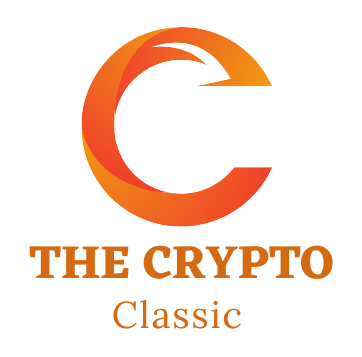Key points about men of greece

Welcome men of greece to our blog post where we dive into the captivating world of Greek men! From their striking physical features to their rich cultural background, there is so much to explore about these fascinating individuals. Whether you’re curious about their family values and gender roles or want to uncover the truth behind commonly held misconceptions, we’ve got you covered. So grab a cup of coffee and join us as we take a closer look at the key points that define the men of Greece!
Physical Appearance and Features
When it comes to physical appearance and features, Greek men are often celebrated for their striking looks. With a mix of Mediterranean and Balkan influences, many Greek men possess a classic combination of olive skin, dark hair, and mesmerizing eyes that captivate others. Their well-defined facial features such as strong jawlines and prominent noses give them an air of masculinity.
In addition to their attractive appearances, Greek men take pride in maintaining their physique. Physical fitness is highly valued in Greek culture, with many men engaging in regular exercise routines and outdoor activities. Whether it’s playing traditional sports like football or going for long hikes in the beautiful landscapes Greece has to offer, staying active is seen as important for both health and aesthetics.
Greek men also have a distinct sense of style. They effortlessly combine modern fashion trends with elements inspired by their rich history and heritage. From tailored suits to casual beachwear, they know how to dress sharply while embracing comfort.
Furthermore, grooming is considered essential among Greek men. They pay attention to details when it comes to grooming their facial hair or keeping themselves well-kempt overall. It’s not uncommon to see neatly trimmed beards or perfectly styled hairstyles on these stylish individuals.
The physical appearance of Greek men reflects not only genetics but also cultural values related to health, style, and self-care
Cultural Background and Traditions
Cultural Background and Traditions
Greek men are deeply rooted in their rich cultural background and traditions. From ancient times to the present day, Greek culture has had a profound influence on the identity of its people, including its men.
One of the most significant aspects of Greek culture is its emphasis on family. For Greek men, family is everything. They value close-knit relationships with their loved ones and prioritize spending quality time together. Whether it’s sharing a meal around the table or celebrating special occasions, family gatherings hold great importance in Greek tradition.
Another important aspect of Greek culture is hospitality. Greeks are known for warmly welcoming guests into their homes and going above and beyond to make them feel comfortable. This tradition extends to Greek men who take pride in being gracious hosts.
Greek men also have a strong connection to religion, particularly Eastern Orthodox Christianity. Many participate actively in religious ceremonies and rituals, observing sacred traditions passed down through generations.
Traditional dances such as syrtos and kalamatianó showcase Greece’s vibrant music and dance heritage. These rhythmic movements bring communities together during festive events like weddings or festivals.
Festivals play an integral role in showcasing Greece’s cultural diversity as well as preserving ancient customs that have been passed down from generation to generation.
The preservation of these cultural practices allows Greek men to maintain a sense of identity while embracing modernity at the same time.
Family Values and Gender Roles
Family values and gender roles play a significant role in the lives of men in Greece. In Greek culture, family is considered the cornerstone of society. Men are expected to be responsible for providing and protecting their families.
Traditionally, Greek men have been seen as the head of the household, making important decisions and being the primary breadwinners. They take pride in taking care of their loved ones and ensuring their well-being.
Gender roles are defined quite distinctly in Greece. Men are often expected to take on more assertive and dominant roles, while women tend to fulfill nurturing and supportive roles within the family unit. However, it is essential to note that these traditional gender roles are gradually evolving with changing societal norms.
Despite these traditional expectations, modern Greek men are becoming increasingly involved in domestic tasks such as childcare and housework. Many young men aspire for a more equal partnership within their relationships, embracing shared responsibilities with their partners.
The concept of filotimo (a sense of duty towards one’s family) is deeply ingrained in Greek culture, emphasizing strong bonds among relatives. Family gatherings are frequent occasions where everyone comes together to celebrate milestones or simply enjoy each other’s company.
While family values remain an integral part of Greek society, it is crucial not to generalize individual experiences or assume that all men conform strictly to traditional gender roles. Each person’s upbringing and personal beliefs may influence how they navigate familial dynamics.
In summary
Career and Work Ethic
Greek men are known for their strong work ethic and dedication to their careers. They take pride in providing for their families and ensuring financial stability. From a young age, Greek men are taught the value of hard work and perseverance.
In Greece, career success is highly regarded and respected. Men strive to excel in their chosen professions, whether it be in business, medicine, law, or any other field. They put in long hours and go above and beyond to achieve their goals.
One aspect of Greek men’s work ethic is the importance they place on education. Many pursue higher education degrees to further enhance their knowledge and skills. This commitment to learning helps them stay competitive in the ever-evolving job market.
Greek men also possess a strong sense of responsibility towards their colleagues and employers. They understand that teamwork is crucial for achieving success at the workplace. They are reliable team players who can be counted on to meet deadlines and deliver high-quality results.
Furthermore, Greek culture values professionalism greatly; therefore, Greek men prioritize maintaining a professional demeanor at all times while conducting business affairs. Respectful communication with clients or coworkers is paramount as it fosters positive relationships within the workplace.
Despite facing economic challenges over recent years, Greek men have shown resilience by adapting to changing circumstances. Many have embraced entrepreneurship as a way to create opportunities for themselves amidst economic uncertainty.
Greek men’s career-oriented mindset combined with their strong work ethic has contributed significantly to Greece’s economy over time.
It’s important not only to acknowledge but celebrate this aspect of Greek culture when discussing the key points about Men of Greece
Social Life and Personality Traits
Social Life and Personality Traits
Greek men are known for their vibrant social lives and unique personality traits. The Greek culture places a strong emphasis on community and connection, which is reflected in the way Greek men interact with others.
One of the most notable aspects of Greek men’s social life is their love for gathering together with family and friends. Whether it’s a simple dinner at home or a big celebration, Greek men enjoy spending time with loved ones. They have a knack for making every occasion feel special, filling the air with laughter, lively conversations, and delicious food.
Furthermore, Greek men are often described as friendly and outgoing individuals who easily make new friends. They possess an innate charm that draws people towards them. Their warm demeanor creates an inviting atmosphere wherever they go.
In addition to being sociable, Greek men also value tradition. They take pride in preserving their cultural heritage through various customs and practices. These traditions play a significant role in shaping their identity and strengthen their sense of belonging within the community.
Another noteworthy trait of many Greek men is their passion for life itself. Whether it’s expressing themselves through art, engaging in spirited debates about politics or sports, or simply enjoying good company over coffee at a local café – Greeks appreciate all aspects of life to the fullest.
When it comes to social life and personality traits, Greek men embody warmth, friendliness, love for tradition,and zest for life that truly sets them apart.
Modern Day Greek Men: Changes and Adaptations
Modern Day Greek Men: Changes and Adaptations
In recent years, Greek society has undergone significant changes, and the role of men in Greece has also evolved accordingly. Traditionally, Greek men were expected to be the breadwinners of their families, while women took care of the household chores and raising children. However, with changing times and increased gender equality awareness, modern Greek men have adapted to new societal expectations.
One noticeable change is that more young Greek men are pursuing higher education than ever before. They are seeking careers in various fields such as medicine, law, engineering, and even entrepreneurship. This shift towards education has allowed them to become more independent and financially stable.
Another adaptation among modern Greek men is a greater involvement in domestic responsibilities. While it was once seen as solely a woman’s duty to manage household tasks like cooking or cleaning, today’s Greek men actively participate in these activities alongside their partners or on their own if they live alone.
Additionally, there has been a notable change in attitudes towards relationships and marriage among modern-day Greek men. Many now prioritize finding an equal partnership based on love and mutual respect rather than simply fulfilling traditional gender roles within marriage.
Moreover, technology has played a significant role in shaping the lives of contemporary Greek men. The advent of social media platforms allows them to connect with people from different cultures around the world while expanding their perspectives on diverse issues.
Modern-day Greek men have embraced change and adapted to evolving societal norms by challenging traditional gender roles. They strive for personal growth through education and actively participate in domestic duties while valuing equal partnerships based on respect rather than conformity to outdated stereotypes.
Misconceptions and Stereotypes about Greek Men
Misconceptions and stereotypes about Greek men have been perpetuated for years, often based on misconstrued notions or outdated beliefs. It’s important to address these misconceptions and shed light on the reality of Greek men in modern society.
One common misconception is that all Greek men are overly macho and possessive. While there may be individuals who fit this stereotype, it is not representative of the entire population. Like any other group of people, Greek men come in a variety of personalities and temperaments.
Another stereotype is that Greek men are lazy or lack ambition. This couldn’t be further from the truth. Many Greek men have strong work ethics and strive for success in their careers. They are dedicated professionals who take pride in their work.
It’s also worth mentioning that not all Greek men are Casanovas or womanizers as some stereotypes suggest. Just like anywhere else, there will always be individuals with different attitudes towards relationships and commitment.
Furthermore, the idea that all Greek men live off their families is another misconception. While familial support can be important in Greece, many men are self-reliant and independent when it comes to supporting themselves financially.
It’s essential to note that Greeks don’t solely rely on breaking plates during celebrations! While smashing plates may be part of certain traditions, it doesn’t define every aspect of a man’s character or behavior.
By addressing these misconceptions about Greek men, we can break down stereotypes and gain a more accurate understanding of this diverse group within our global community
Conclusion
Conclusion
Greek men are a fascinating blend of history, culture, and modernity. Their physical appearance often reflects the Mediterranean influence with dark features and strong physiques. The rich cultural background and traditions shape their values and behavior in various aspects of life.
Family holds immense importance for Greek men, as they prioritize close-knit relationships and strong bonds with their loved ones. Gender roles still exist to some extent but have evolved over time to embrace more equality between partners.
When it comes to work ethic, Greek men are known for their determination and perseverance. They take pride in their careers and strive for success while valuing hard work.
Greek men possess vibrant social lives, showcasing their warm hospitality through festive gatherings filled with music, dancing, and delicious cuisine. Their lively personalities make them great company at any event or gathering.
However, it is important to note that not all stereotypes about Greek men hold true today. While they may have once been associated with certain characteristics like womanizing or excessive machismo, modern-day Greek men have adapted to changing societal norms.
It is crucial not to fall into the trap of generalizations or misconceptions about any group of people based on outdated stereotypes. Just like individuals men of greece from any other culture or country, Greek men are diverse in personality traits and should be appreciated for who they truly are rather than being judged solely based on preconceived notions.
So let us celebrate the unique qualities that define the Men of Greece – proud bearers of ancient heritage combined with a progressive mindset – making them an intriguing part of our global community!




